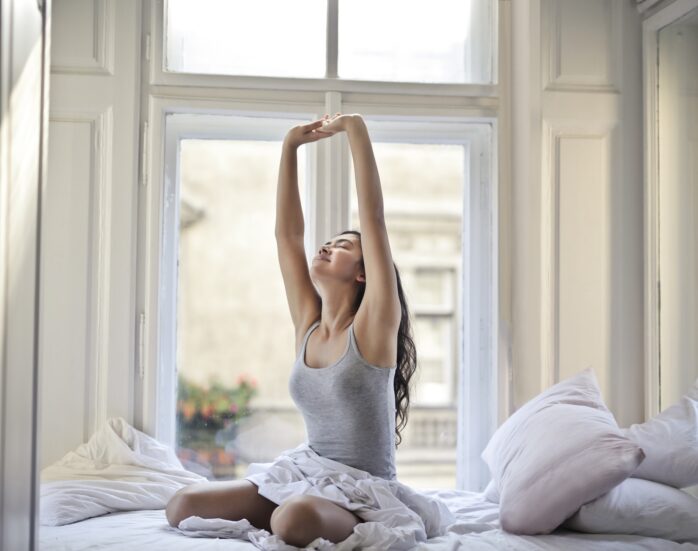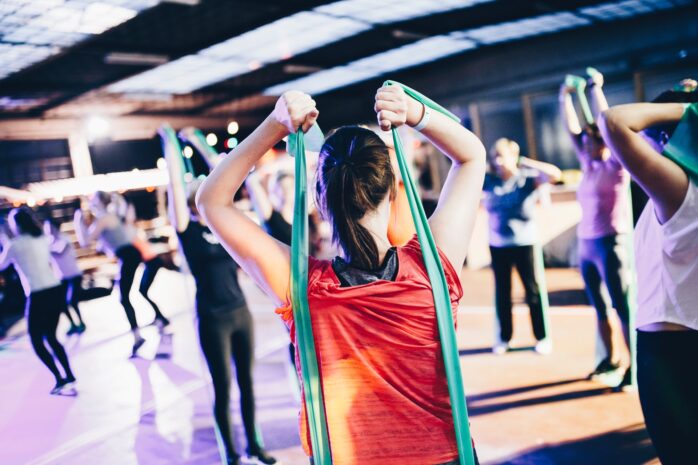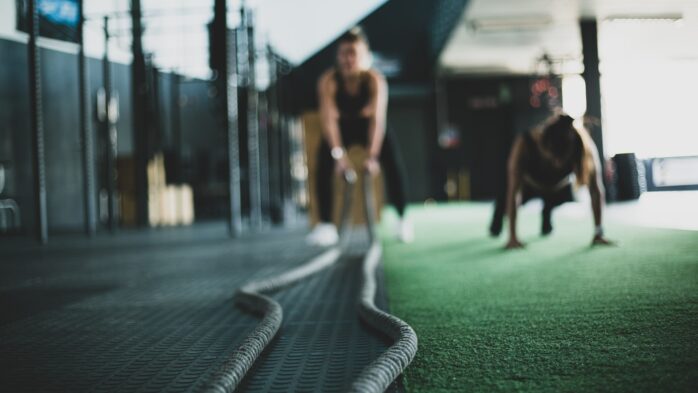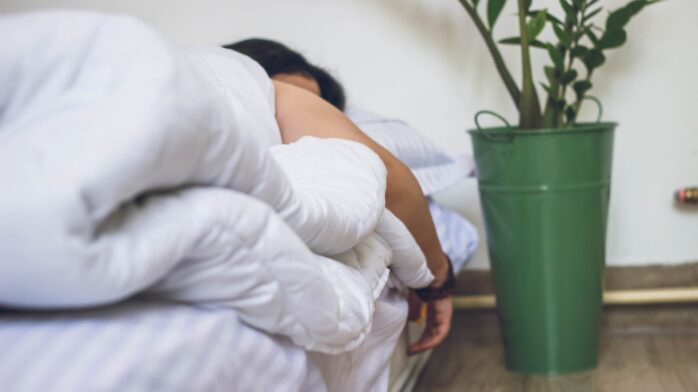We’re always looking to improve our health & wellbeing, whether that’s the quality of the food we eat, the nutritional supplements we take or the amount of stress in our life. For most, increasing how much we exercise and how well we sleep is atop that list.
There’s abundant information on the positive correlation that better sleep and increased physical activity can have on our overall health; and conversely how bad poor sleep and limited activity can be for both your short term and long term health. But which one should you prioritize the most? Should you focus on increasing the amount of sleep you get or how much you exercise? How about improving a little bit of both?
It doesn’t matter if you are working out just to stay fit or you are trying to build muscles, it is important to get your body to the best possible condition as it will make everything a lot easier. Adding supplements to your diet is another way to boost your overall health, muscles, and strength, and, starting with some of those from this website, could be a good move.
According to increasing evidence from wearable data, those who routinely engage in exercise get better sleep; both in quality and quantity. They also tend to be overall much healthier in terms of their mental and physical recovery. So engaging in exercise itself can help us sleep better too!
What The Evidence Says
Unfortunately, very few studies have actually investigated the impact of exercise on sleep length, and quality. Furthermore, whether the time one engages in exercise could modulate its effect on sleep remains unknown.
Luckily, a recent study demonstrated that exercise and sleep are, in fact, highly correlated! There seems to be a multi-directional relationship between exercise and sleep. For one — getting adequate sleep makes us rested enough and more motivated to exercise; not to mention more satisfied with the workouts themselves.
This specific study investigated how exercise timing affects sleep along both objective and subjective parameters. So not only what does a hardware device tell us about the person’s sleep quality (e.g. a wearable), but also how well does the individual themself believe they slept. The study could lend insight into what a person’s optimal exercise time might be to get a more restful night of sleep. For example, could exercising in the morning or evening lead to better sleep for you specifically?
In this study, the researchers looked at twenty healthy, young (~23 years old) males, who self-reported being “poor sleepers” in a randomized study design. They were split into two groups based on the time of day they would be exercising. One group would follow a morning exercise intervention, while the other group would follow an evening exercise intervention.

As part of the study, the participants’ sleep was observed in a sleep lab for three consecutive nights. This is how they were observed during the study:
Day 1: Participants were familiarized with the environment and slept as normal without any new parameters introduced.
Day 2: Participants had a baseline recording of polysomnography (PSG) performed to assess their individual sleep parameters such as sleep efficiency (e.g. how long it takes them to fall asleep), sleep duration, and sleep stages (such as REM and non-REM sleep).
Day 3: Participants performed exercise in the morning (7-8 am) or evening (7-8 pm) based on their respective group. At the end of day 3, an additional recording of PSG was performed and participants were asked to fill out a questionnaire evaluating their subjective sleep quantity and quality.
The exercise sessions they were asked to perform were fairly short (~35 mins) and involved just 4 sets of knee extensions and 10 minutes of cycling at 90% of their age-predicted max heart rate. If you’re trying to figure out what that heart rate target was for the participants, age-predicted max heart rate is calculated by subtracting your age from 220, which gives you your max heart rate target.
Since the average age group of participants in this case was 23, that means the participants were asked to cycle for 10 mins while maintaining a pace right around 177 beats per minute (bpm). This format of measuring age appropriate max heart rate targets is a good measure of physiological exertion in most non-athletes; athletes tend to exceed their age-appropriate targets by ~10%.

The researchers found that the morning exercise group improved objective sleep efficiency and improved subjective sleep depth and sleep quality while the evening exercise group also increased objective sleep efficiency and significantly improved the time spent in REM sleep. The major distinction here being the amount of time the evening exercise group spent in REM sleep.
The study design itself is not particularly conclusive considering the small number of study participants, the very small study length and the lack of a comparison to a non-exercise induced group. Not surprisingly, a majority of sleep parameters measured in the study were unaffected by either group considering the fact that the workouts themselves were not strenuous enough or frequent enough to have a major effect on physiological adaptation for the study participants.
Takeaways
However, there are some worthy takeaways from this study that are worth exploring such as:
- Exercising (irrespective of timing) can have a positive effect on both objective and subjective sleep quality.
2. Exercising in the evening could potentially have a stronger impact on the amount of time one spends in REM sleep – something that many people suffer from, despite getting adequate hours of sleep. REM sleep is important for learning and memory and it’s when your brain handles information you’ve taken in during the day.
3. Introducing exercise into one’s routine could have a stronger impact on individuals who are “poor sleepers”, such as the study participants, versus those who are already getting adequate sleep.
More importantly, if you are suffering from poor sleep, or even just trying to increase the amount of the deep sleep or REM sleep you typically get, you should experiment with different exercise frequencies (e.g. 2 vs 5 times a week), exercise timing (e.g. morning vs. afternoon vs. evening), exercise types (e.g. cardio vs. strength training vs. HIIT) and even exercise length (e.g. 20 vs 45 vs 60 mins) to see how they impact your own sleep. This could help you come up with your own exercise-induced sleep prescription and have significantly positive contributions to your overall well being, energy levels, stress levels and disease risk!
If you’re finding it hard to come up with a protocol that works for you, there are solutions out there that can guide you to find the optimal exercise timing for your body, such as BasisHealth, a mobile app that automatically learns your behavioral habits from your wearable devices and turns that into personalized recommendations to improve energy levels and overall wellbeing.


















